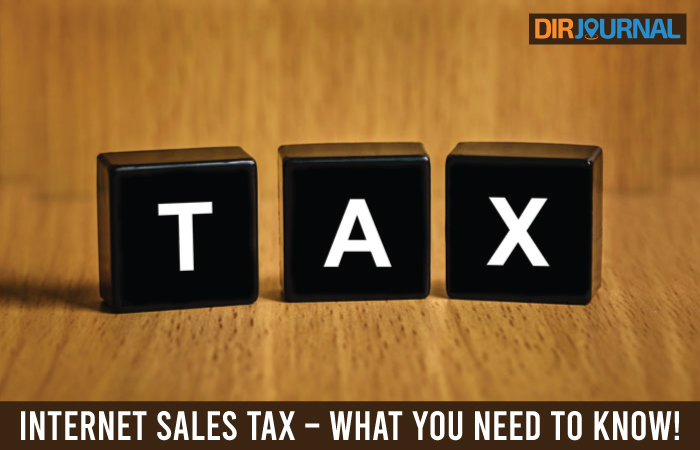The Internet takes tax-free shopping to a totally different level. This is one of the main attractions for customers to shop online. However, the fact is that some Internet sales are subject to sales.
The pressure on the major internet retailers like Amazon.com is forcing them to scale down their operations in states where they are being demanded to collect taxes from buyers.
Online business is growing rapidly and is expected to reach almost $160 billion this year, according to Forrester Research.
Online Retailers With A Physical Presence In A State
But most online sales do not have to collect sales tax, unless they have a physical presence in the state. If an online retailer has some sort of a physical presence in any state, such as a business office, warehouse or a store, then it must collect sales tax from customers of that particular state.
To better understand, let’s take an example: If you have a store in California and you sell online who is also from California, you will need to collect sales tax from that person, even if the item is being shipped from a warehouse located elsewhere.
Currently, there is no need of collecting sales tax from customers who are located in a state where there is no such physical presence.
This rule comes from a decision by the Supreme Court in 1992, where it was said that mail-order merchants did not have to collect sales taxes for sales into states where they did not have any physical presence. This ruling includes all remote sellers, including online retailers.
Independent Partners Selling Through Major Online Retailers
While many online retailers may not have presence in many states, they are still responsible for collecting taxes if they have independent partners in states. For example, Amazon and Overstock permit independent companies with physical presence in different states to sell their goods through their sites and charge them a fee. These major retailers will have to collect taxes even in states where these independent companies exist, as they are selling indirectly through them.
This rule came into effect last year in New York. If you have been following the internet sales tax drama, you would remember that it was even challenged in court. Now, Hawaii, Rhode Island and North Carolina also have passed similar laws. As a response to this law, both the internet giants have cancelled all their associate programs in these states.
Amazon will not really be affected even if all their associate partners are cancelled, as it constitutes only 10% of their total sales. In fact, the margins from these indirect sales are lower than their direct sales.
Local Stores Creating Legal Subsidiaries Online
There are exceptions to this rule. Local stores sell products online tax free by establishing separate legal subsidiaries to handle the business online. Since the online business does not have a physical presence in the state, they do not have to collect sales tax on online purchases. This practice of getting around the rules to avoid sales tax is not appreciated by the “solely” brick-and-mortar retailers who still have to collect taxes from their customers.
Why Local Retailers Feel At A Disadvantage
With so much of the business being done online, the brick-and-mortar retailers feel at a disadvantage and insist that the government makes online retailers collect taxes too. They fear that because of the cheaper rates being offered online, consumers will soon buy only online instead of buying from them. Since most of the states are in need of revenue, they are more than willing to do this.
Implementation Of Use Tax
Many states have now implemented the “use” tax. Use tax is different from sales tax. It is called “use tax” when the customer pays it and “sales tax” when the seller pays it to the state.
Customers, who buy online and live in a state that collects sales tax, are required to pay the tax to the state, even if the online retailers do not collect it. Use tax is a way of making sure that the state collects revenue on every taxable purchase made within its territory. But because collecting use tax even on smaller items means a lot of trouble, states have only implemented this on big items. Things are changing and several states, including Maine, Nebraska, New Jersey, Connecticut and North Carolina are inclined to collect use taxes on all purchases online. However, the complicated rules and lack of enough resources have made it difficult to follow through with this.
In fact, this is the general opinion of most people, who feel that there is no reason why online retailers should not collect taxes from their customers just like any other business.
Initially, online retailers and others argued that collecting taxes for purchases online may restrict the growth of online businesses. More and more states are coming up with stringent methods of collecting taxes. Most states now feel that they are losing out millions of dollars of tax revenue and offline retailers feel their online competitors are being given an unfair advantage. Going by this, it seems more likely that the tax advantage of buying and selling online may come to an end soon.













